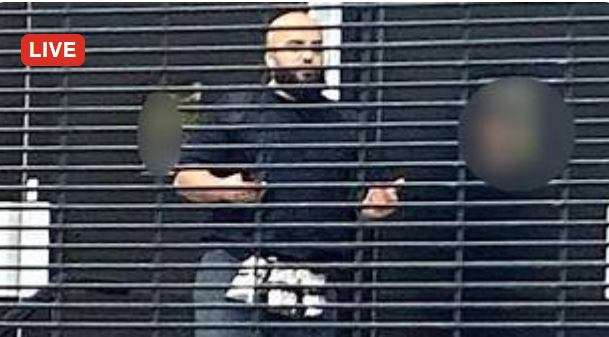Doctors Strike Rights Don't Make Them Right
- presenterscarlettred

- Jul 14, 2025
- 4 min read
Doctors do have a right to strike, but are they right to strike?
That question hit me like a diagnosis I didn't want to hear. As a disabled person who relies on regular treatment, watching doctors plan another strike after already receiving substantial pay rises felt like a betrayal.
My daughter has been waiting nearly two years for corrective surgery. Two years of her life put on hold while doctors debate whether their recent pay increases are enough.
My first reaction was pure anger. These doctors on the surface seemed greedy and negligent, demanding more from an already struggling public purse.
But anger rarely tells the whole story.
The Ethical Contradiction
The facts are stark. Recent strikes demand a 29% pay rise despite doctors already receiving an average 22.3% increase over two years following previous strikes.
When doctors choose to become doctors, they take some form of oath. Not the original Hippocratic Oath, but modern versions that still promise to act in patients' interests.
The tension is obvious. How do you square "do no harm" with actions that demonstrably delay treatment?
I have friends who are both doctors. They don't struggle financially. They have quite a nice standard of living compared to the majority.
Yet their colleagues are striking for more money while my daughter waits for surgery.
The contradiction crystallized for me during a Jeremy Vine show last week. A young doctor said if he and his colleagues could get paid more and go somewhere abroad in the sunshine instead, why wouldn't they?
Sunshine and money. That's what it came down to.
Carol, one of the panellists, was disgusted. "What about your Hippocratic Oath? People will die from this."
The doctor's response revealed everything. This wasn't about patient care or professional duty. It was about lifestyle expectations.
The Real Cost of Industrial Action
The numbers tell a brutal story. More than 1.3 million healthcare appointments have been rescheduled because of industrial action.
But statistics don't capture the human cost. The psychological impact of multiple cancellations. The erosion of trust between patients and doctors.
The effects won't just be immediate. They'll cascade through waiting lists for years.
I think about millions who trusted these doctors with their lives. The domino effect on our NHS. The chaos in emergency rooms.
Lives will be lost. That's not hyperbole. That's arithmetic.
Research shows that greater exposure to strikes leads to higher readmission rates for vulnerable populations, particularly minority groups.
The most vulnerable pay the highest price while doctors debate their compensation.
The Vicious Circle
After the pandemic, something fundamental changed in healthcare. People became more inwardly focused. Care and compassion seemed to dwindle.
The constant pressure on NHS staff, combined with rising verbal and physical abuse, created a toxic cycle.
Patients don't treat staff with respect. Staff morale drops. Empathy erodes. Medicine becomes just a pay packet.
Then doctors feel they need more money to tolerate what they do.
It's a vicious circle where abuse breeds detachment, which breeds more public anger, which breeds more abuse.
The profession that once saw itself as having a calling now treats itself like any other career where you chase the best deal.
But here's the problem with that logic. If colleagues are leaving the profession or moving abroad, maybe they weren't in it for the right reasons to begin with.
When you choose to become a doctor, it comes with responsibility for patients no matter what.
The Trust Breakdown
Public trust in doctors is collapsing. Research shows that 24% of people blame strike action for appointment cancellations even when strikes weren't the cause.
That's the real long-term damage. Once trust breaks down, it's nearly impossible to rebuild.
How do you ask the public to celebrate doctors while those same doctors are striking and delaying surgeries?
You can't rebuild trust while actively breaking it.
We cannot afford to spend any more on the NHS. Cuts are being made everywhere else. Disabled people face cuts. Pensioners face cuts.
Yet here we are, worrying about whether we'll be cared for without paying substantial amounts to those already in more fortunate positions.
The Moral Verdict
After working through my anger and trying to understand the deeper issues, I've reached a clear conclusion.
Doctors have no valid reason to strike again.
They already received substantial pay rises. Ethically, there's no justification. Morally, there's no defence.
It's in poor taste and wrong on so many levels.
The root cause isn't money. It's the breakdown in the relationship between doctors and patients. The erosion of the professional covenant that once made medicine a calling rather than just a career.
But you can't fix that breakdown by striking for more money while patients suffer.
The solution requires addressing the deeper systemic issues. Protecting healthcare workers from abuse. Rebuilding the culture of care and compassion.
None of that happens while doctors choose industrial action over patient care.
My daughter will continue waiting. Millions of others will have their appointments cancelled. Trust will erode further.
All so doctors can pursue sunshine and money.
That's not the profession I thought I could trust with my life.
Rights and responsibilities must coexist. When they don't, society breaks down.
Doctors have the right to strike. But they're not right to strike.
The difference matters more than they seem to understand.










Comments